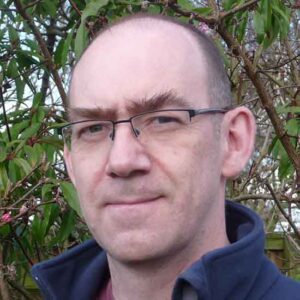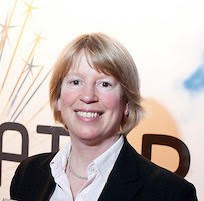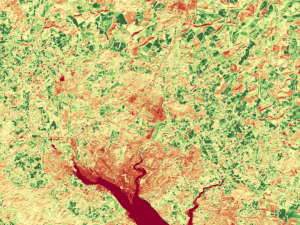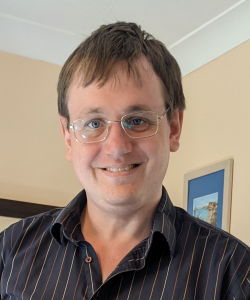Tuesday 20th May 2025 from 19:00 for 19:30
Abingdon United Football Club (Northcourt Rd, OX14 1PL, Abingdon)
 If asked to talk about a laser, many of us would speak of light shows at concerts or night clubs, maybe laser pointers, or for those close to our speaker’s generation; maybe the famous ‘laser scene’ from James Bonds’ Goldfinger! But from quite humble beginnings since its first demonstration in 1960, lasers have grown to become some of the most important generic tools that have ever been invented. Today, lasers underpin much of what we consider to be modern society, modern economies, modern science, modern technology. In this talk we will explore some of these areas, give a basic explanation of how lasers work and highlight some of the pioneering research and development that is taking place in laser-based science in Oxfordshire on the Harwell Campus. This includes, for example; sophisticated systems that look for new solutions to cancer, climate change, new energy technologies, through to the development of compact plasma-based accelerators for industrial and medical imaging and ending in the construction of the world’s most powerful laser – potentially powerful enough to perturb the vacuum. The talk will not be technical or complex, rather a celebration of some of the wonderous and very likely unknown ways that lasers are continuing to shape our future.
If asked to talk about a laser, many of us would speak of light shows at concerts or night clubs, maybe laser pointers, or for those close to our speaker’s generation; maybe the famous ‘laser scene’ from James Bonds’ Goldfinger! But from quite humble beginnings since its first demonstration in 1960, lasers have grown to become some of the most important generic tools that have ever been invented. Today, lasers underpin much of what we consider to be modern society, modern economies, modern science, modern technology. In this talk we will explore some of these areas, give a basic explanation of how lasers work and highlight some of the pioneering research and development that is taking place in laser-based science in Oxfordshire on the Harwell Campus. This includes, for example; sophisticated systems that look for new solutions to cancer, climate change, new energy technologies, through to the development of compact plasma-based accelerators for industrial and medical imaging and ending in the construction of the world’s most powerful laser – potentially powerful enough to perturb the vacuum. The talk will not be technical or complex, rather a celebration of some of the wonderous and very likely unknown ways that lasers are continuing to shape our future.
Speaker: Professor John Collier
 Professor Collier is the Director of the UK’s Central Laser Facility (CLF), based at the Rutherford Appleton Laboratory at Harwell, Oxfordshire and part of the UKRI Science and Technology Facilities Council (STFC). A laser scientist by training, Professor Collier initially joined the CLF as a research scientist from CERN (where he was a Research Fellow), a position from which he has grown to become its Director 15 years ago. Professor Collier has played a central role in building the CLF into one of the world’s leading research centres for multi-disciplinary science and innovation using lasers and establishing the CLF at the heart of major international programmes. He is Executive Director of Laserlab-Europe AISBL, a consortium of all the major laser facilities throughout Europe, a Fellow of the Learned Society of Wales and he won the Institute of Physics Glazebrook Medal in 2020.
Professor Collier is the Director of the UK’s Central Laser Facility (CLF), based at the Rutherford Appleton Laboratory at Harwell, Oxfordshire and part of the UKRI Science and Technology Facilities Council (STFC). A laser scientist by training, Professor Collier initially joined the CLF as a research scientist from CERN (where he was a Research Fellow), a position from which he has grown to become its Director 15 years ago. Professor Collier has played a central role in building the CLF into one of the world’s leading research centres for multi-disciplinary science and innovation using lasers and establishing the CLF at the heart of major international programmes. He is Executive Director of Laserlab-Europe AISBL, a consortium of all the major laser facilities throughout Europe, a Fellow of the Learned Society of Wales and he won the Institute of Physics Glazebrook Medal in 2020.







